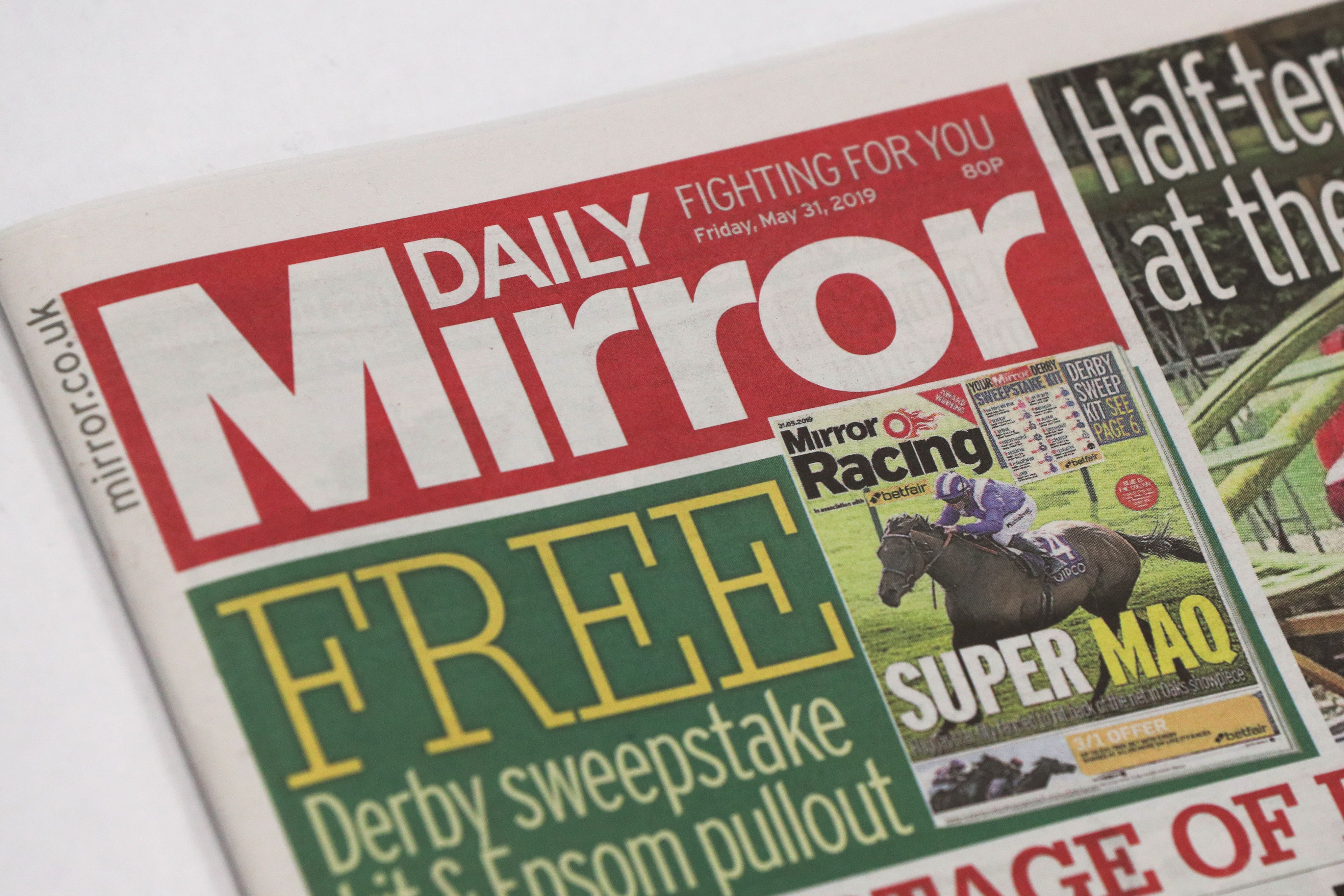Mirror publisher Reach suffers blow from Facebook news changes
The group said digital revenues slumped 16.1% in the six months to June 25 due to the Facebook changes in its news feed.

Your support helps us to tell the story
From reproductive rights to climate change to Big Tech, The Independent is on the ground when the story is developing. Whether it's investigating the financials of Elon Musk's pro-Trump PAC or producing our latest documentary, 'The A Word', which shines a light on the American women fighting for reproductive rights, we know how important it is to parse out the facts from the messaging.
At such a critical moment in US history, we need reporters on the ground. Your donation allows us to keep sending journalists to speak to both sides of the story.
The Independent is trusted by Americans across the entire political spectrum. And unlike many other quality news outlets, we choose not to lock Americans out of our reporting and analysis with paywalls. We believe quality journalism should be available to everyone, paid for by those who can afford it.
Your support makes all the difference.The publisher of the Daily and Sunday Mirror newspapers has revealed tumbling half-year profits as it suffered a hit to digital sales from a move by Facebook to change the way it displays news content.
Reach – which also owns the Express newspapers, the Daily Star and regional newspapers across the UK including the Manchester Evening News – saw digital revenues slump 16.1% in the six months to June 25, which dragged overall turnover down by 6.1%.
The group said the Facebook news changes have led to a “significant” drop in customers being referred to its sites and a 16% decline in page views from online readers over the first half.
Facebook’s changes in its news feed include a decision in April to shut down Instant Articles, which was a mobile-friendly format that quickly loaded news articles on the Facebook app.
Digital growth for the period has been materially affected by lower referral traffic across the sector, particularly following Facebook's deprioritisation of news content, which has driven page view declines for publishers
Reach reported underlying operating profits plunging by nearly a quarter – 23.5% – to £36.1 million – due to the knock to its revenues as well as soaring costs.
Statutory pre-tax profits fell to £6.7 million from £32 million a year ago.
Jim Mullen, chief executive of Reach, said: “Digital growth for the period has been materially affected by lower referral traffic across the sector, particularly following Facebook’s deprioritisation of news content, which has driven page view declines for publishers.”
Reach is cutting costs by 5% to 6% this year to offset the trading pressures, which it said were set to keep profits on track with full-year expectations, helping shares leap 18% higher.
Most of the cost savings will be delivered in the final six months of the year, it added.
The group announced plans in April to put 420 jobs in the UK and Ireland at risk of redundancy, including those of around 190 of its journalists.
But Mr Mullen said that print media was showing “resilience and predictability” in the face of ongoing pressures.
He added that circulation revenue has grown and that newsprint costs are starting to come down now that energy bills are easing back.
Sales from circulation rose 2.4% in the half-year, as cover price increases offset falling circulation numbers.
But print advertising revenues plunged by 18.3% in the half-year.
Results also showed it made a further £3.5 million in payouts over phone-hacking allegations, with its provisions for liabilities surrounding the saga increased by £5.9 million to £45.4 million at the half-year stage.
The National Union for Journalists (NUJ) said journalists have seen the digital business strategy they are working on “pulled from under them because of the vagaries of Facebook”.
Chris Morley, NUJ national coordinator for Reach, said: “These downbeat half-year figures in no way represent the hard work of our members in what have been the most trying of circumstances.”
He said that as well as two rounds of redundancies this year, its members have also been offered a pay offer that “falls well short of inflation”.
Reach declined to comment on pay negotiations.